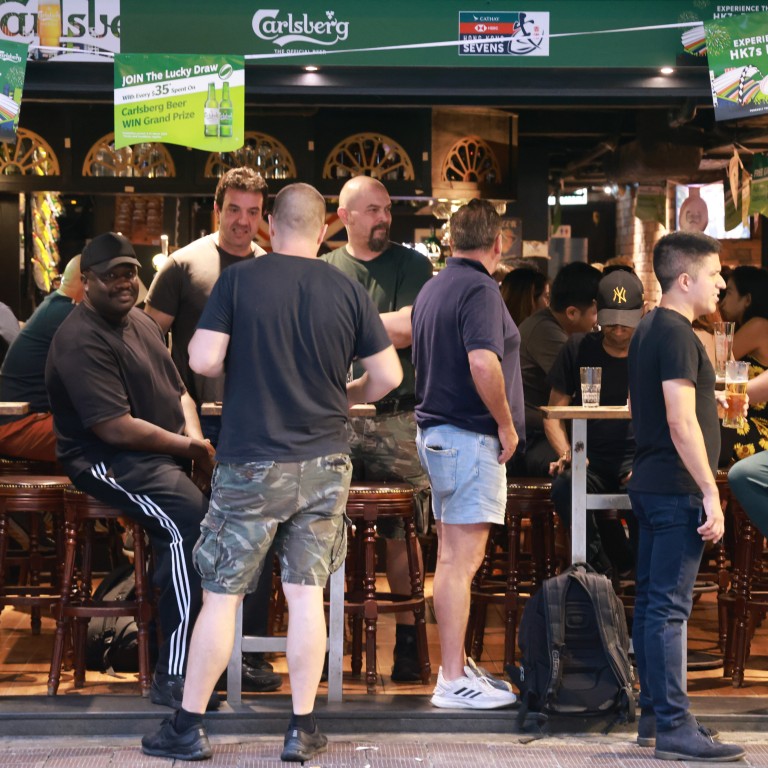
Hong Kong’s shift in fortunes, from Easter to the Rugby Sevens, shows why the city must appeal more to Western tourists
- Easter was grim for Hong Kong bars and restaurants, as more left the city than entered, and mainland Chinese visitors didn’t spend as much as previously
- A week later the Rugby Sevens lightened the mood as tourists spent on partying; it showed why Hong Kong must change tack to remain Asia’s World City
Hong Kong’s bars and restaurants appear to have had quite a reversal of fortunes over the past two weekends.
Over Easter, multiple media reports detailed the dire situation for the hospitality and luxury retail sectors, with a disproportionate number of people leaving compared to those coming in.
According to Immigration Department numbers, over half a million Hong Kong residents took off between March 29 and April 1, either overseas or to China to get more bang for their buck eating and shopping. Meanwhile, only about 200,000 inbound visitors arrived, primarily from mainland China.
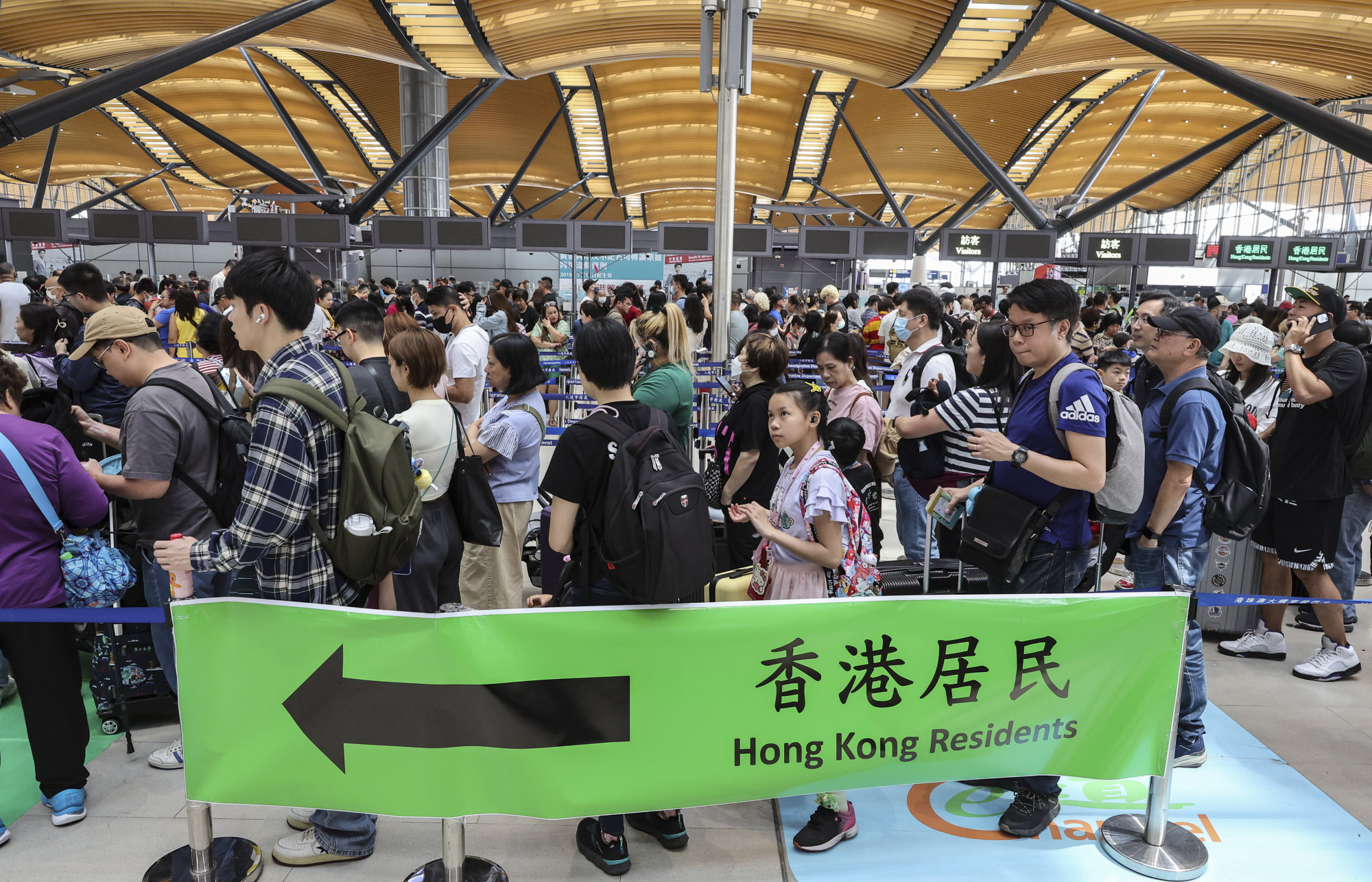
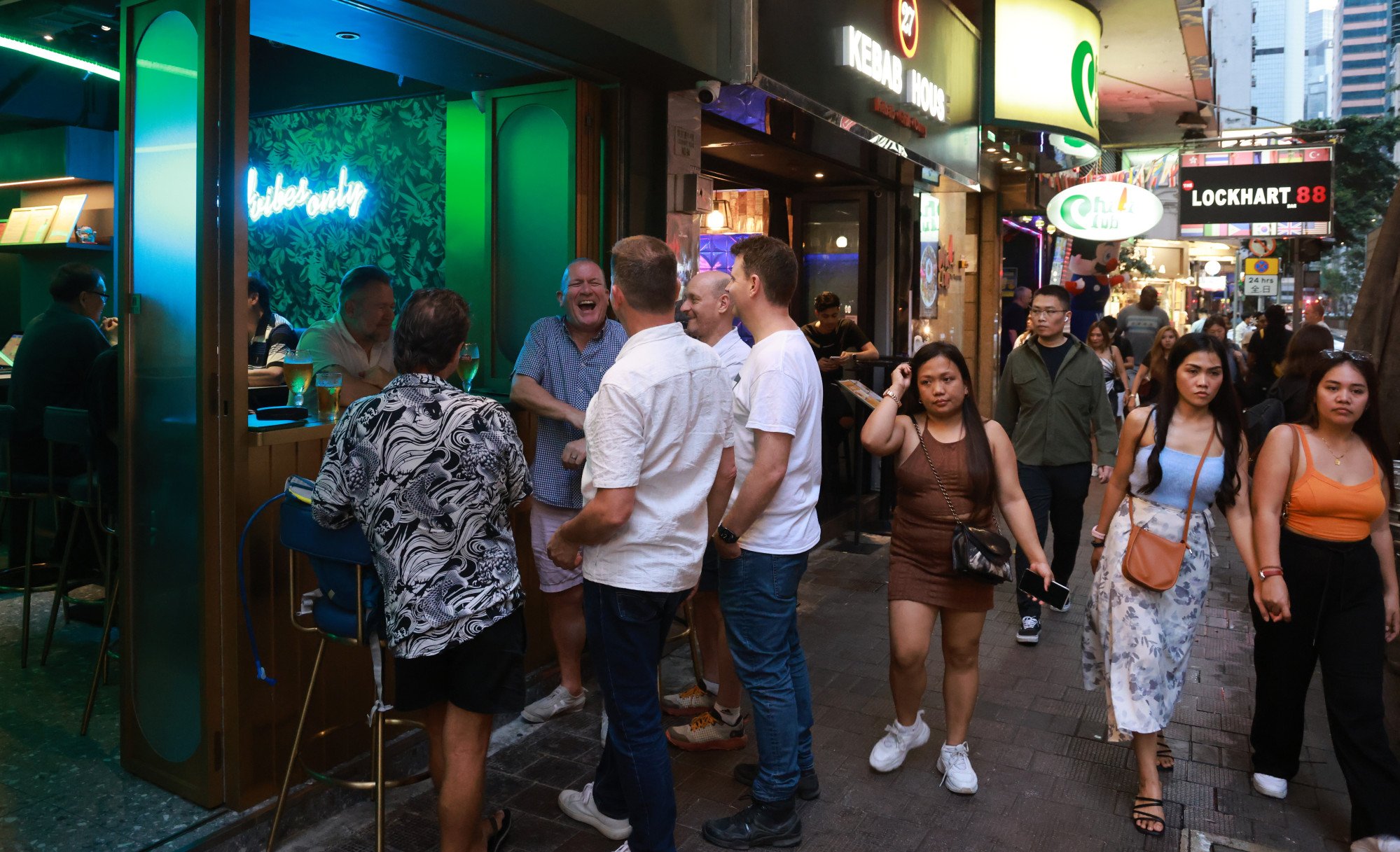
Before the tournament even began, Wan Chai pubs were filled with people loudly carousing in numbers not witnessed since pre-pandemic times. As annoying as they were – blocking the pavements in front of bars – it felt like the good ol’ days.
The vibe was confirmed by media reports of tourists visiting the Lan Kwai Fong nightlife district in Central, and other parts of the city. One rugby fan calculated he would spend roughly HK$20,000 (US$2,550) on hotels and sightseeing over a four-day trip.
Rugby fans probably didn’t eat and drink in the same posh settings as the Art Basel folks did, but then again, pretentious art f**ts don’t know how to party like All Blacks, Lions, and Les Bleus supporters.
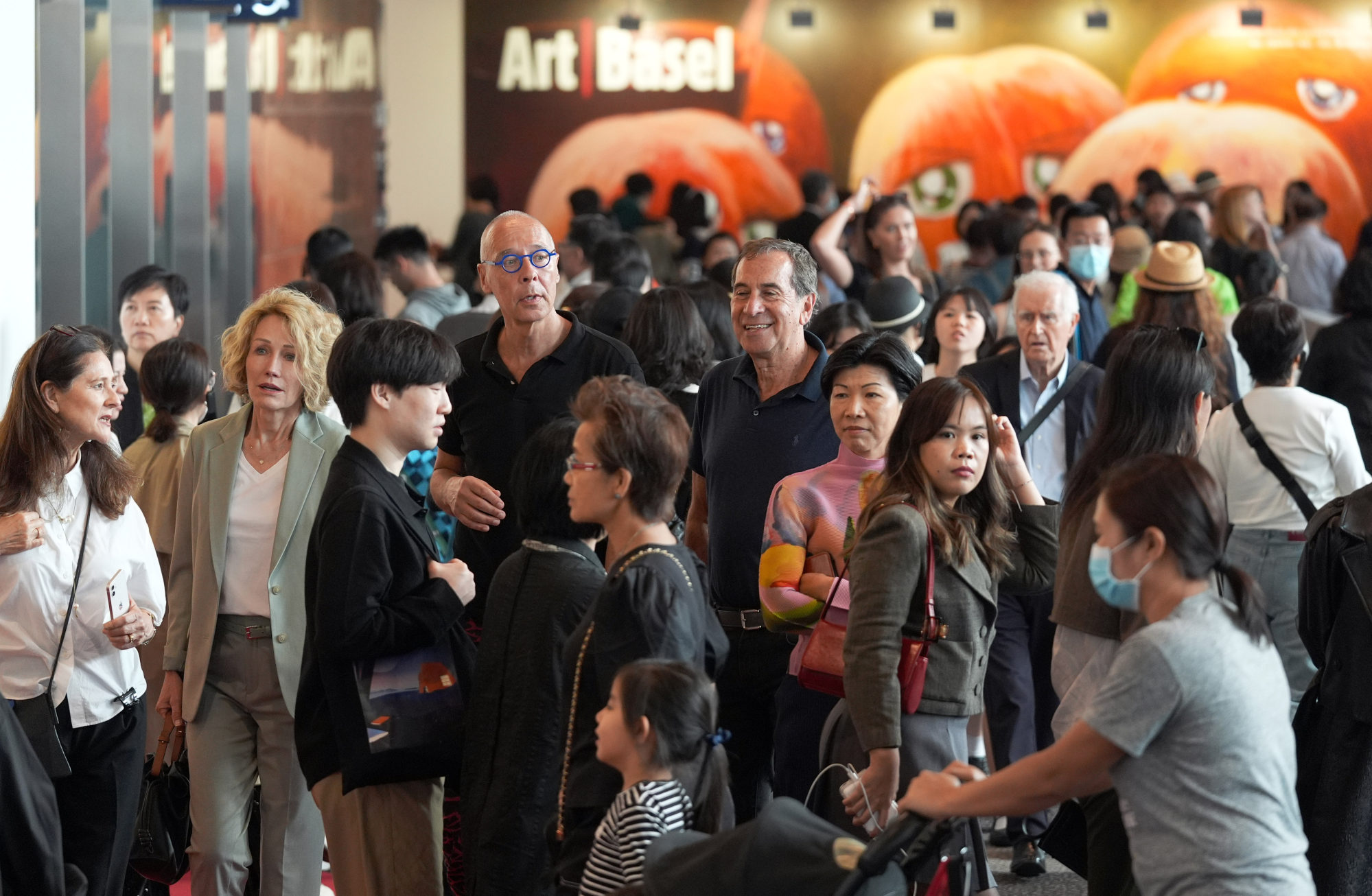
Eventually, it will be interesting to see if fine-art collectors or sports fanatics added more to the city’s consumption tally.
From anecdotal observation, rugby fans are obviously more visible. Even if they only rained dollar bills on beer and fish and chips, they improved the city’s mood for a few days.
For a time, I think our tourism officials relied complacently on mainland Chinese holidaymakers, assuming they would be impressed by our shiny, expensive buildings and fork out to experience Hong Kong’s glamour and gourmet cuisine.
What Kennedy Town’s failure to become a hip dining hub says about Hong Kong
However, many Chinese arrivals were day trippers, touring by bus, and stopping only at souvenir shops and cheap canteens. If they stayed overnight, it wasn’t at nice hotels but at inexpensive dorms.
They weren’t the “quality” guests the hospitality industry wants to attract, to put it politely.
Of course, there are also wealthy mainland Chinese tourists who splurge extravagantly. But the days of queues to enter luxury stores and of visitors buying flats with suitcases full of cash might be over. Hong Kong’s tourism strategy now needs to change.
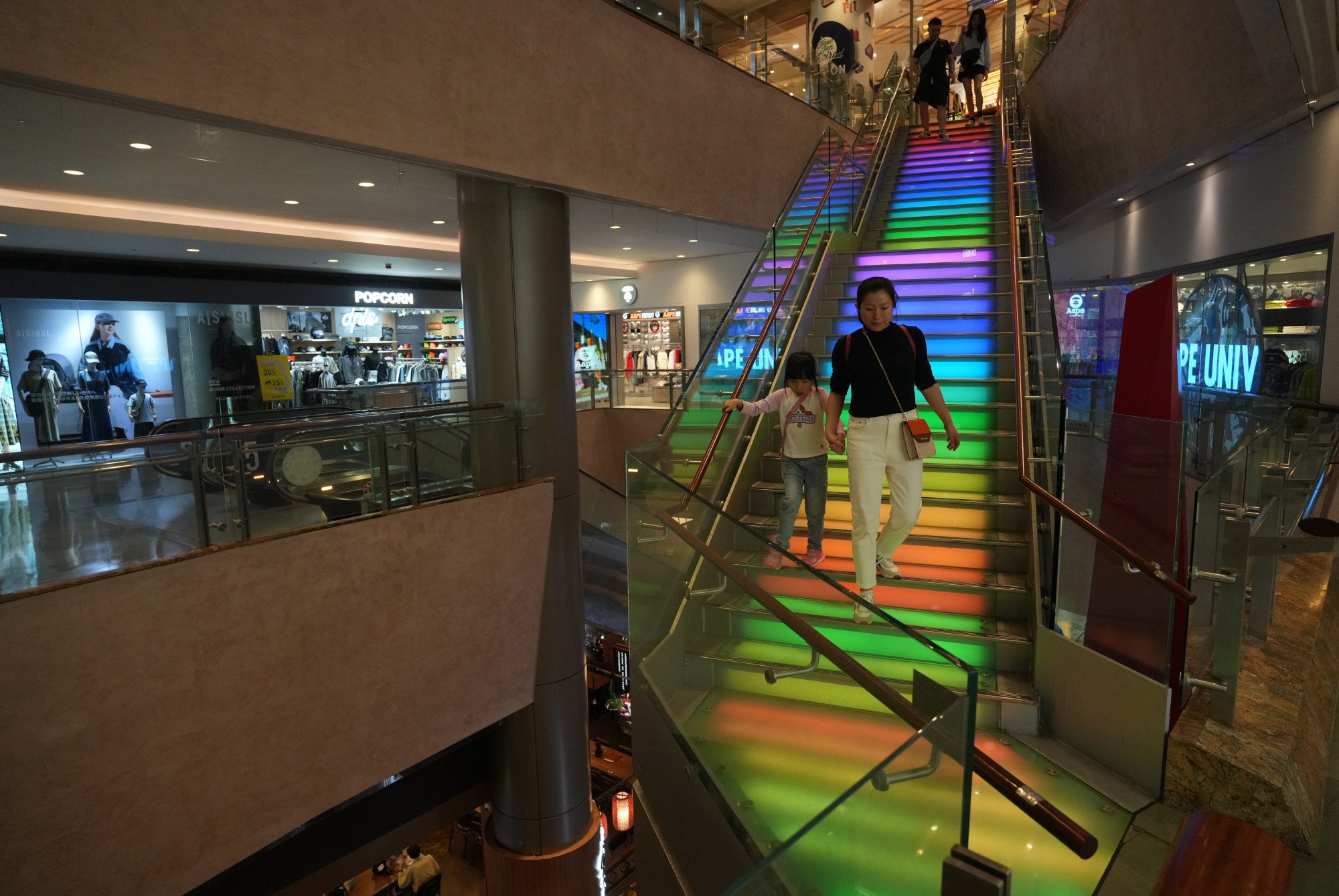
Hong Kong needs Western visitors. If we’re supposed to be Asia’s World City, then we need to appeal to a more international demographic.
Of course, we want visitors from Asian countries and China too, but Western tourists still possess the highest spending power. If we’re a free market city, that’s still the bottom line we can’t afford to ignore.

